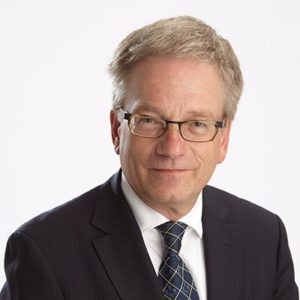
Remi Quirion: Newly elected President, INGSACredit: Remi Quirion
The 4th International Congress on Scientific Advice to Governments, that took place in the city of Montreal in Canada, saw the launch of the first Francophone network hoping to support politicians to use science more effectively in their decision-making.
While science should be accessible enough to inform policy-making, several experts complain that Anglo-Saxon research has long been privileged over French language scientific publications in informing policymakers on issues they should focus on. The network hopes to change this, and to also build the capacity of different stakeholders involved in using scientific evidence to inform policy at all levels of government.
Canadian researcher Rémi Quirion, who has just been elected head of the International Network for Government Science Advice (INGSA), is keen to replicate the success of Anglophone countries in research in the Francophone academic world.
"For those of us who believe strongly in the evidence and integrity of science, the last 18 months have been difficult," says Quirion, in an exclusive interview with Nature Africa.
Quirion, who is a co-founder of the network of 5,000 members that span about 110 countries, stresses that the COVID-19 pandemic has demonstrated the need for science advice to assist governments in crisis situations.
“COVID has highlighted many issues about the interface between science, public policy and politics, between science and society, and broadly in diplomacy,” says Peter Gluckman, the outgoing president of INGSA.
Connecting through science
The COVID-19 pandemic have sparked strong public interest in science. A statement released by INGSA points out that around the world, many scientists have become celebrities. "Yet this popularity blurs the boundaries between science, scientists and political power," the release notes.
Quirion believes it is high time for the French-speaking world, which has long been overshadowed by science’s traditional roots in English, to shine.
With the launch of this first Francophone science advisory group, a particular emphasis will be placed on the development of synergies between Francophone researchers throughout Francophonie countries.
Quirion hopes that his presidency would allow him to continue the mandate he gave himself when he co-founded INGSA in 2014, with regional chapters in Africa, Asia, Latin America and the Caribbean: to offer a platform to facilitate and promote scientific advice to governments, especially among Francophonie states.
The formation of a Francophone network aims in particular to offer opportunities for the exchange of ideas and experiences, especially in key areas such as climate change and the COVID-19 health crisis, and increase the visibility of Francophone research, explains Quiron.
To enhance the value of French-speaking scientific publications, the new head of INGSA advocates reforms that promote cultural diversity in the research world.
"We have set ourselves the goal of training bilingual people in the field of science and we want to have training programmes that integrate the Francophone and Anglo-Saxon cultures," says Quirion.
"We want to create a unique network of practitioners and researchers interested in advancing the evidence-policy interface …priority will be given to youth through the granting of scholarships and training in other areas such as climate change” he says.
